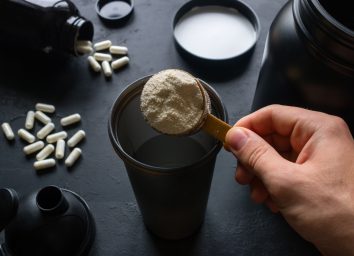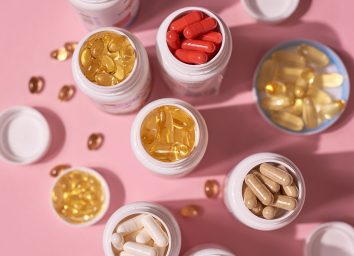The Best Supplements That Reverse Skin Aging, Say Dietitians
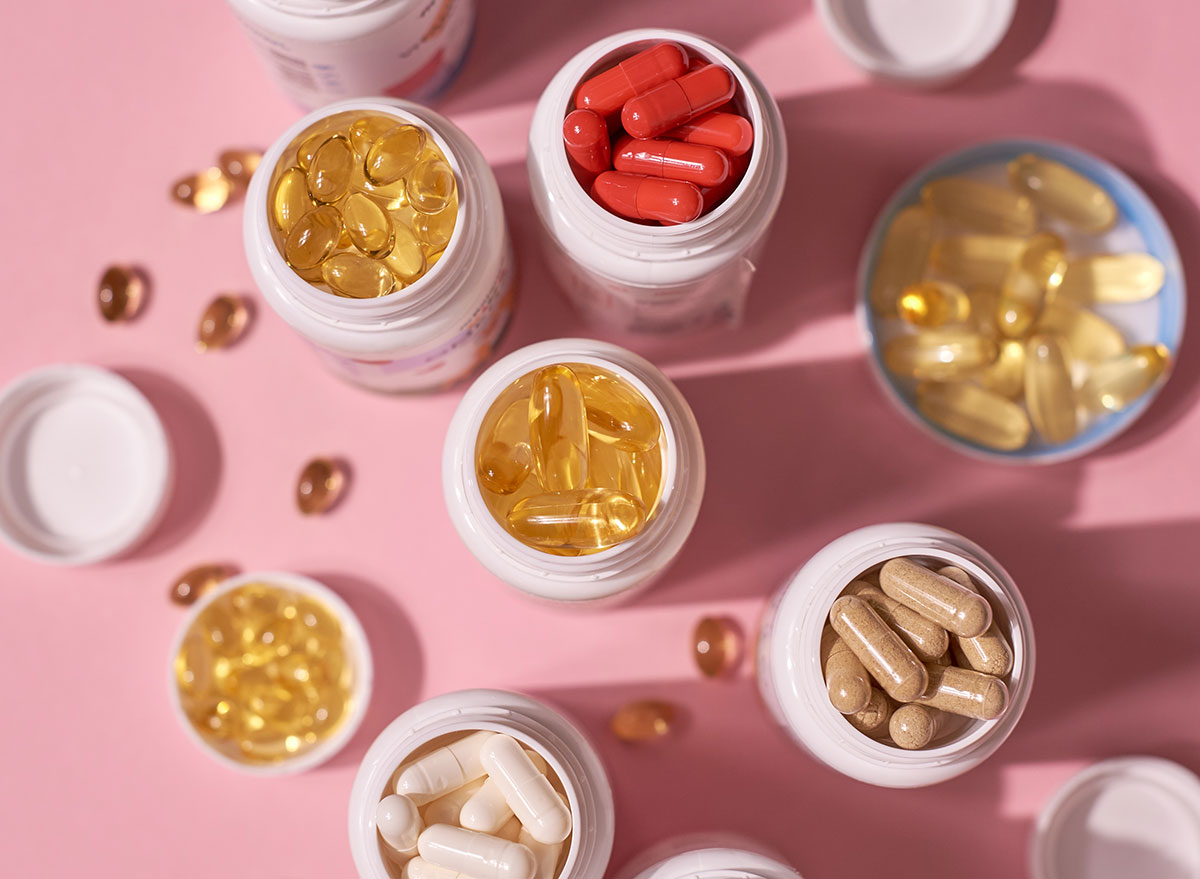
Unfortunately, the fountain of youth is only a myth. There is no magic elixir to reverse the effects of time and exposure to the elements, and as we age, our skin loses its luster. Free-radical damage from the sun, decreased cell production, and everyday wear-and-tear are all factors in creating the telltale wrinkles, fine lines, and droopy skin of getting older.
When it comes to reducing signs of aging, the best approach is to be proactive. There's much to be said about a thoughtful skincare routine (important: you should be wearing sunscreen)–but in addition to cleansers and moisturizers, there are nutrients you can add to your diet to improve firmness, protect against free radicals, and maintain healthy-looking skin.
"Instead of using only topical treatments, like cosmetics, when you eat foods [with anti-aging nutrients] and take these supplements, they promote health on the inside of your body. This can boost antioxidant status, fight inflammation, or stimulate collagen growth, and you'll see the benefits show up on the inside, as well as the outside," say Tammy Lakatos Shames, RDN, CDN, CFT, and Lyssie Lakatos, RDN, CDN, CFT, also known as The Nutrition Twins.
These five supplements are recommended by The Nutrition Twins and registered dietitian Lauren Manaker, MS, RDN, LDN, all from our Medical Expert Board, and can help you reverse signs of aging skin. Read on, and for more on how to eat keep your skin healthy, don't miss Eating Habits You Must Give Up For Clearer Skin, Say Dietitians.
Collagen
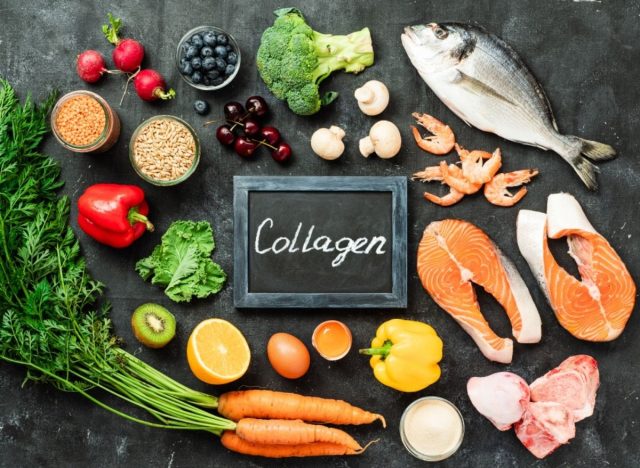
One of the most noticeable signs of aging is a loss of elasticity: wrinkles, fine lines, and sagging skin. The culprit? A loss of collagen.
"Collagen is the most abundant protein in the body. It makes up the connective tissue, so it supports the bone, skin, joints, cartilage, tendons, and muscles," say The Nutrition Twins. "As you grow older, collagen becomes impaired and breaks down, leading to aging skin."
There are lots of foods that contain collagen—animal products like poultry, beef, fish, bone broth, and gelatin, to name a few—but if you're not getting enough of this foundational protein through your diet, The Nutrition Twins say you should consider adding a daily dose of collagen to your routine.
"You'll want a hydrolyzed collagen supplement because it's already broken down, so it's easier for the body to absorb," they suggest.
A peer review of 19 studies found that 20- to 70-year-olds—mainly female participants—who took hydrolyzed collagen saw improvements in skin hydration, elasticity, and wrinkles after 90 days, compared to the placebo group.
When taking collagen, doses from 2.5 to 15 milligrams have been found to be "safe and effective" for a variety of uses, including joint pain, muscle building, and bone strength.
Vitamin C
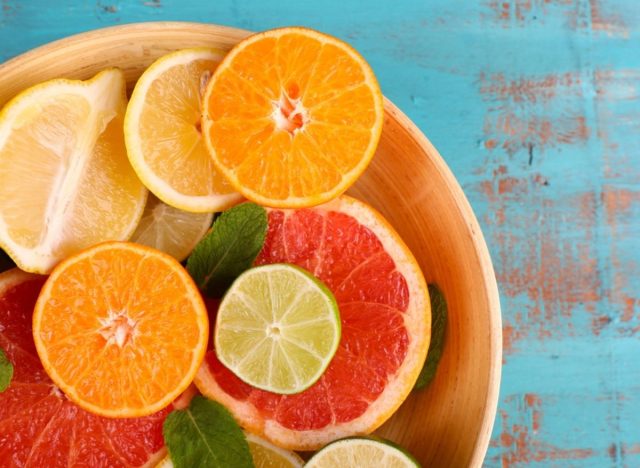
Keeping an arsenal of citrus in your kitchen isn't just great for your immune system. Manaker says it can also help with your beauty routine.
"Vitamin C can play a part in the production of collagen, making it a key nutrient to include in your diet if you want to have younger-looking skin—especially if you are already going through the effort of taking collagen supplements." She says that some data suggests that eating more vitamin C-rich foods, like strawberries and kiwi, may help people experience fewer wrinkles and age-related skin dryness.
Vitamin E
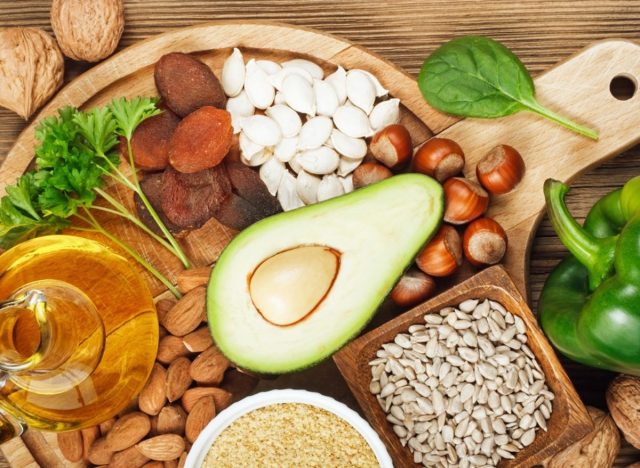
Vitamin E is an antioxidant vitamin that is responsible for helping the immune system function and protecting against cell damage from free radicals.
Vitamin E supplements offer important anti-inflammatory benefits that support many aspects of our health. And there are some reports that taking these supplements can help support healthy skin. Manaker says, "While the benefits may be more prominent when vitamin E is applied topically to the skin, people do report positive skin-health benefits after taking vitamin E supplements too."
However, it might be better to increase your vitamin E levels through your diet unless you talk to a doctor about a supplement first. High levels of vitamin E through supplementation come with risks, which include inhibiting blood clotting and, for men, potentially increasing the rate of developing prostate cancer.
Epigallocatechin gallate (EGCG)
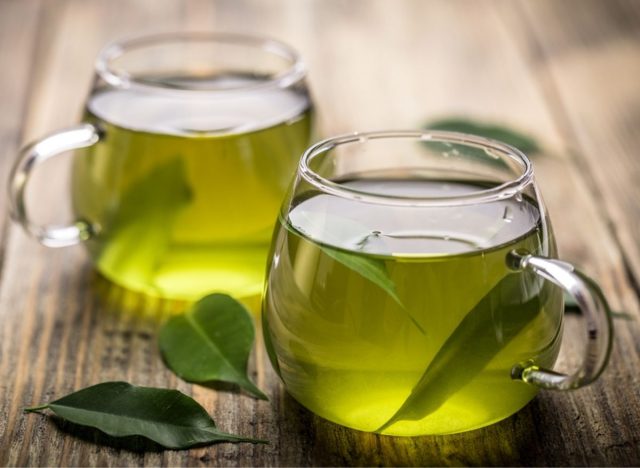
If you needed another reason to drink green tea, it turns out that sipping on a cup could do your skin some favors. The active polyphenol in green tea, epigallocatechin gallate, or EGCG, is an antioxidant that studies suggest can have positive effects on your skin.
"[EGCG] can fend off free radicals from environmental pollutants and combat signs of aging from the sun, stress, and other toxins," say The Nutrition Twins. "It works by improving skin elasticity to prevent wrinkle formation and increase skin hydration and moisture retention."
You can opt for a couple of cups of green tea to get your intake. If you prefer to use a supplemental form of EGCG, make sure you're taking a reasonable dosage, as recommended by a health professional. The risks from EGCG can be associated with liver damage if taken at too high of a dose.
Resveratrol
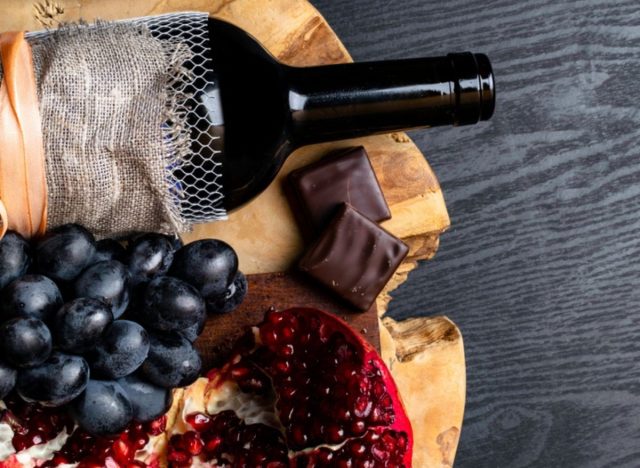
Ever heard that an evening glass of red wine could actually be good for you? Resveratrol is the antioxidant found in wine and grape juice that has been linked to a lower risk of heart disease when consumed in moderation, and it also has shown positive effects against aging. This polyphenol may also help support skin health by combatting free radicals.
The studies on its benefits have been mixed, however, because the body has a hard time absorbing the oral supplement. "While taking resveratrol via supplement form may offer some benefit, some people may experience more out of using a topical solution," says Manaker.
Before taking a supplement for resveratrol, consult your doctor about dosage, as the side effects of too much resveratrol could include inhibiting clot formation and increasing bleeding risk.
READ MORE: 15 Supplements Every Woman Should Take, Say Doctors.

